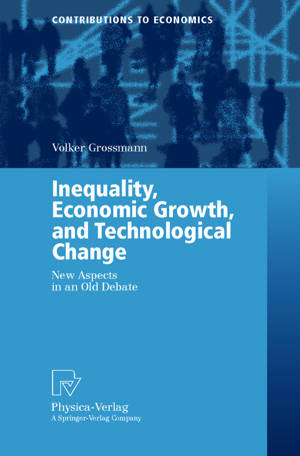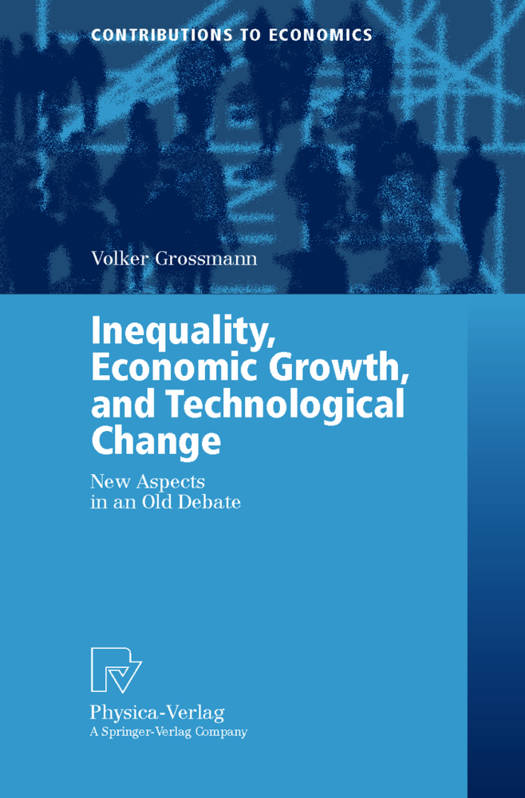
Door een staking bij bpost kan je online bestelling op dit moment iets langer onderweg zijn dan voorzien. Dringend iets nodig? Onze winkels ontvangen jou met open armen!
- Afhalen na 1 uur in een winkel met voorraad
- Gratis thuislevering in België vanaf € 30
- Ruim aanbod met 7 miljoen producten
Door een staking bij bpost kan je online bestelling op dit moment iets langer onderweg zijn dan voorzien. Dringend iets nodig? Onze winkels ontvangen jou met open armen!
- Afhalen na 1 uur in een winkel met voorraad
- Gratis thuislevering in België vanaf € 30
- Ruim aanbod met 7 miljoen producten
Zoeken
€ 52,95
+ 105 punten
Omschrijving
Do more equal economies grow faster? Which role does the public sector play for the relationship between inequality and growth? What is the impact of technological changes and capital accumulation on the distribution of wealth, income, and wages? How do social comparisons among individuals affect redistributive taxation, the wage structure, and the growth rate of an economy? To answer these questions is the goal ofthis book. I became interested in the issues ofdistribution and growth during my study of economics at the University of Bonn and as an exchange student at the UC Berkeley. Most notably, I was stimulated by my academic teachers George Akerlof, Paul Romer and Axel Weber. This book was written during my stay at the department ofeconomics at the University of Regensburg, in the years 1997-2000. It is my doctoral dissertation in economics (University ofRegensburg; day ofdisputation was th July 24 2000). I am very grateful to my supervisors Wolfgang Buchholz and Josef Falkinger for their continuous support and very helpful suggestions on many drafts of parts of this book. I am also indebted to my colleagues Hartmut Egger and Martin Summer for illuminating discussions as well as to participants of many conferences and research seminars where parts of this book have been presented. Last but not least, I would like to thank my partner Ronke Osikominu for her moral support and my parents Gerda and Eberhard for more than Ican say.
Specificaties
Betrokkenen
- Auteur(s):
- Uitgeverij:
Inhoud
- Aantal bladzijden:
- 187
- Taal:
- Engels
- Reeks:
Eigenschappen
- Productcode (EAN):
- 9783790813647
- Verschijningsdatum:
- 26/01/2001
- Uitvoering:
- Paperback
- Formaat:
- Trade paperback (VS)
- Afmetingen:
- 156 mm x 234 mm
- Gewicht:
- 290 g

Alleen bij Standaard Boekhandel
+ 105 punten op je klantenkaart van Standaard Boekhandel
Beoordelingen
We publiceren alleen reviews die voldoen aan de voorwaarden voor reviews. Bekijk onze voorwaarden voor reviews.











